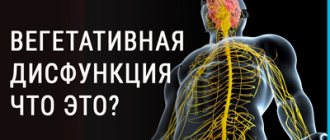Fainting (an outdated medical name is syncope) is a condition characterized by loss of consciousness and a drop in blood pressure. Metabolism slows down, sudden weakness and confusion occur. Fainting can last from a few seconds to tens of minutes.
In most cases, fainting is caused by a sudden decrease in metabolism in the brain, cerebral circulation is disrupted, and the brain stops receiving enough oxygen. Despite the fact that the brain does not function at full capacity, basic vital functions are reduced, but do not disappear completely. The patient is breathing, the heart is working.
Loss of consciousness can be caused by a variety of diseases. Sometimes fainting occurs due to a coincidence of circumstances - fatigue, stuffiness, prolonged fasting.
Before fainting, there is always a pre-fainting state, which can also last from a few seconds to several minutes. In some cases, it is enough for the patient to sit or lie down and relax the collar to avoid fainting.
Presyncope is characterized by the following symptoms:
- pulsation in temples;
- difficulty breathing - a subjective feeling of lack of oxygen;
- increased sweating;
- feeling of heat throughout the body;
- nausea, dizziness;
- tachycardia, feeling of rapid heartbeat;
- the appearance of dark spots before the eyes.
If the patient fails to sit down, he faints. In most cases, patients quickly come to their senses without outside help (although this does not mean that it does not need to be provided). Sometimes after fainting, other unpleasant symptoms are observed, for example, trembling and involuntary twitching of the limbs, the urge to urinate.
At CELT you can get advice from a neurologist.
- Initial consultation – 4,000
- Repeated consultation – 2,500
Make an appointment
Causes of fainting
There are several physiological reasons that can lead to short-term loss of consciousness. Let's look at some of them.
- Disturbances in the functioning of the autonomic nervous system. This system is responsible for vascular tone. If there is a malfunction, it cannot correctly give commands to the vessels, they contract sharply, and loss of consciousness occurs. This is the main cause of neurogenic fainting - the most common fainting.
- Diseases of the cardiovascular system. They are the cause of the so-called. cardiogenic syncope. The heart does not work well enough, the blood vessels narrow, which leads to brain hypoxia.
- Atherosclerosis and vascular diseases. This also includes ischemic attacks and strokes.
- Increased intracranial pressure. It occurs as a consequence of certain diseases - a tumor, congenital hydrocephalus, or against the background of cerebral hemorrhage, as well as after head injuries.
- Decreased blood glucose, decreased oxygen concentration in tissues. Such conditions occur with diabetes, anemia, kidney and liver failure.
- As a result of a decrease in the volume of fluid circulating in the body. May be the result of bleeding, diarrhea, or other excess fluid loss.
- Poisoning by toxins: carbon monoxide, ethyl alcohol and others.
- As a result of various psychological and psychiatric diseases. For example, with neuroses and anxiety, a common symptom is hyperventilation. The body tries to control the oxygen content, which leads to vascular spasm. In such cases, patients need to learn breathing techniques.
There are other reasons: infectious diseases, traumatic brain injuries, epilepsy attacks. In each individual case, it is necessary to undergo an examination to find out why fainting occurs.
If this is an isolated case, and there were no pathologies during medical examinations before, there is no need to worry. But if fainting recurs, you need to visit a neurologist.
Fainting and loss of consciousness, what happens:
Your reaction to the news that strikes you causes the production of adrenaline in the body, in which adrenaline directs blood to the heart, lungs, muscles, but at the same time insufficiently supplies it to the brain. The sudden redistribution of blood in the body leads to fainting. Knowing this feature in yourself, prepare for the reactions of your beloved organism in advance.
Fainting can happen to any of us, for example, in a stuffy room, and even a cramped one. In this case, fainting is caused by a long stay in an upright position and a lack of oxygen due to stuffiness. To prevent lightheadedness, leave the room if possible; if this is not possible, sit down and unbutton your clothes or tight clothing.
Always carry a bottle of water and something to eat with you, as soon as you feel that you are getting sick, eat anything and drink water, it helps.
Our doctors
Pankov Alexander Rostislavovich
Neurologist
40 years of experience
Make an appointment
Novikova Larisa Vaganovna
Neuropathologist, Candidate of Medical Sciences, doctor of the highest category
Experience 39 years
Make an appointment
How many days does it take to faint from hunger?
Patients practicing therapeutic fasting are interested in how quickly fainting occurs when they completely refuse food. It is difficult to answer this question unambiguously, since the capabilities of the human body are individual. Some people can go several days without eating without experiencing syncope. Others lose consciousness even with a slight disruption of their usual diet.
Here a lot depends on the person’s physique. Thin people have low fat reserves. They experience hungry fainting after 1 day of complete refusal to eat. Dense and overweight people may lose consciousness on the third or fourth day of fasting, since at first the body will draw nutrients from its own reserves.
Comment from user Evgeniy:
Who is how prepared? If you are prepared for fasting, then not soon. I haven't been dumped for 40 days. Drank water. There is dry fasting, it lasts up to 11 days, but there any contact with water is prohibited. In the first days (up to about a week), fat reserves are consumed quickly, and then the feeling of hunger disappears and the body switches to endogenous nutrition, using fat reserves very sparingly and producing from resources everything necessary for life.









